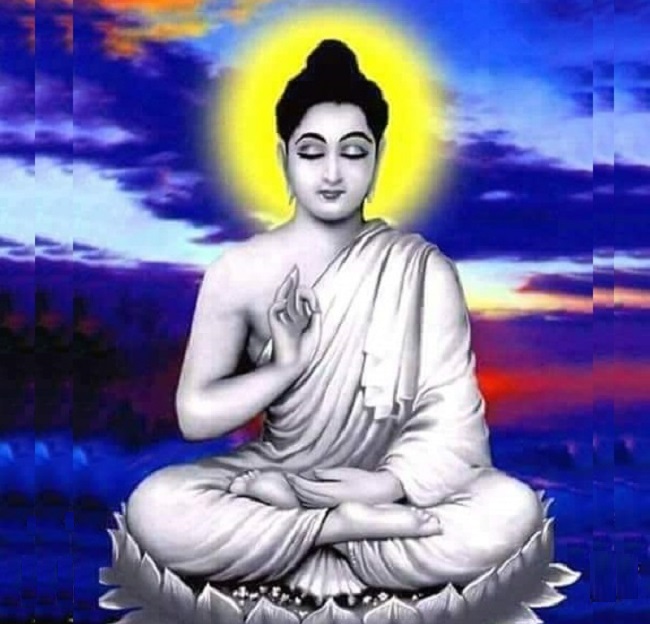Gautam Buddha’s Life And Teaching

Lord Gautam Buddha, showed the world a new path with his great ideas and teachings and made an important contribution in bringing unprecedented change in society. Many people succeeded in their lives by the teachings given by Gautam Buddha, and also in their mind, the love of the society, the feeling of harmony was developed.
Gautam Buddha was the founder of the Buddhist religion, he was India’s great philosopher, scientist, religious leader, a great social reformer. Gautam Buddha was born as Siddhartha in the Hindu religion, he also lived a normal life in this materialistic world, but after some time he left his wife and child, and after separation from the family he searched moksha and became a promoter.
Lord Gautam Buddha, was in search of divine knowledge, to seek the path of salvation for the world, to seek the reason of birth and death, and truth. Mahatma Gautam Buddha inspired the people to follow his path. Many people have changed their life after listening to the great teachings of Gautam Buddha.
That which appears to be permanent and permanent is also devastating. What appears to be great, it also collapses. Where there is a coincidence, there is destruction. Where there is birth there is also death.
While assimilating such supreme truth ideas, Mahatma Buddha established Buddhism which is one of the major religions of the world.
Early Life
Lord Buddha was born in Lumbini forest near Kapilavastu in 563 BC. His father Śuddhodana was the ruler of Sakya kingdom Kapilavastu. Mother’s name was Mahamaya, the princess of Koliyan. Mother Mahamaya died on the seventh day of birth of Mahatma Buddha i.e. Siddhartha (name of childhood), so he was raised by his aunt Maha Pajapati.
Siddhartha was of a spontaneous, thoughtful, and compassionate attitude from his childhood. Because of which his father was very worried. Later Siddhartha was married to Yashodhara at the age of 16 years. A few years after the marriage, a son was born, named Rahul.
Everywhere, the happiness of the birth of a son was being celebrated but Siddhartha said, he couldn’t find peace. Although they enjoyed all happiness, peace was not available. Four scenes (old, patient, dead person, and ascetic) turned his life towards the path of restlessness. So, one day he left his sleeping son and his wife and went out in search of knowledge.
Siddhartha tried to get knowledge from two Brahmins in the Rajghat’s capital, but there was no satisfaction. Afterward, he reached on the bank of river Niranjana, near the forest of Urvale, where he received five Brahmin ascetic worshipers. He did hard tenures with these ascetics but no benefit could be found.
After this Siddhartha reached Gaya (Bihar), he installed Samadhi under a tree and promised that unless the knowledge was received, he would not move from there. On seven days and seven nights he remains on Samadhi, on the eighth day, on the day of Baashaha Purnima, you experienced true knowledge. This incident was called “speech” The tree under which he received the knowledge is called “Mahabodhi tree” and the place in Gaya is said to be “Bodh Gaya“. He succeeded after six years of extreme austerity and deep meditation.
After enlightenment, Mahatma Buddha first preached to his five former Saints associates in Sarnath (near Banaras). These disciples were called “Panchavigirya”. The event of these teachings given by Mahatma Buddha is called ‘Dharma-Chakra-Enlightenment‘. Lord Buddha also went Kapilavastu. Where his wife, son, and many Sakyavansh became his disciples.
The teachings of Buddhism have been compiled by the Brahmin disciples under three Pitaka. 1. Vinaya Pitaka 2. Sutta Piṭaka 3. Abhidhamma PiṭakaThey are composed in the Pali language. In Buddhism, they attain the same place as Vedas in Hinduism.
Most of the Prophets of Lord Buddha were promoted by Emperor Ashoka. Ashok’s heart changed from the massacre of the Kalinga war, he assimilated the teachings of Mahatma Buddha and conveyed these teachings to the masses by writing them. Bhimrao Ambedkar was also a follower of Buddhism.
Mahatma Buddha continued to circulate his thoughts in all the cities throughout his life. During the tour, when he reached Pava, he had diarrhea. After that, went to Kushinagar and on the day of Baishakh Purnima, the Amrit soul became absorbed in the human body in the absence of Brahmand. This incident is called ‘Mahaparinirvana’. Mahatma Buddha’s teachings are still guiding the path of public opinion in the country and abroad. Lord Buddha creates a strong opposition to violence.
Three Universal Truth of Buddha teaching
1. Nothing is lost in the universeMatter turns into energy, energy turns into matter. A dead leaf turns into soil. A seed sprouts and becomes a new plant.
2. Everything ChangesLife is like a river flowing on and on, ever-changing. Sometimes it flows slowly and sometimes swiftly.
3. Law of Cause and Effect (Karma)Nothing ever happens to us unless we deserve it. We receive exactly what we earn, whether it is good or bad.
